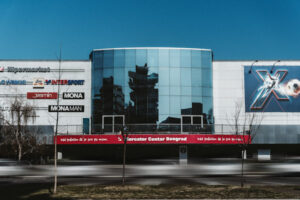There’s no doubt that the number of channels available to shoppers today has completely transformed the retail landscape. Retailers are in flux, experimenting with all channels and valiantly trying to be at every consumer touchpoint.

No retailer has found the perfect balance or the most profitable model yet, but all are realizing that the relationship between retailer and shopping center owner has never been more important if bricks-and-mortar stores are to succeed in an arena that offers a bewildering array of choices to the shopper.
Retailers and shopping center developers have traditionally been in a power struggle of sorts. Developers court the most popular retailers with incentives to be in their malls while trying to maintain the most favorable lease terms for their assets.
The most sought-after tenants do their best to negotiate lease terms and incentives that put them in a position of power vis-à-vis the developers. Lip service is given to the need for a true partnership between developer and retailer, but that’s often all it is.
Data as a powerful asset
Now more than ever, neither developer nor retailer can afford to overlook any method that increases the level of success for both.
Michelle Buxton, a retail insight specialist and Owner and Group Managing Director of Toolbox Group, international marketing consultancy, says: “While retailers will continue to develop their omni-channel strategies, we’re going to see an increasing polarization in the market between the goals of delivering convenience vs. experience.”
She continued: “What seems somewhat paradoxical is that online shopping has driven the need for a superior physical shopping experience. Shoppers are demanding that a trip to the mall deliver a satisfying shopping experience at every level and engage all the senses. This has been the catalyst for developers and retailers to begin working together in truly meaningful ways to deliver the optimal physical shopping experience. It is the key to strengthening the ability of the mall, working with its retailers, to cultivate and retain local shoppers.”
Developers and retailers have long known that data and communication are the most powerful assets in marketing. Being able to communicate instantly with all aspects of the retail community within the shopping center leads to profitability for all.
Toolbox Group, recognizing that ongoing communication between developer and retailer is the foundation of success, has developed a digital platform, Mallcomm, to connect the shopping center management with its retailers. It has over 100,000 users worldwide, including its largest retail user, Primark.
Improve channels of communication
David Fuller-Watts, Group Digital Director Toolbox, explains: “Mallcomm was developed to improve the channels of communication between shopping center management and retailers in both the marketing and operations spheres.”
From an operational point of view, it can provide instant, reliable communication, including with all aspects of the retail operation. From a marketing perspective, Mallcomm can instantly send and collect essential management data, such as on traffic and sales. In addition, Mallcomm has been instrumental in driving sales by facilitating store-to-store loyalty opportunities and helping center teams more quickly to identify opportunities to work together.





